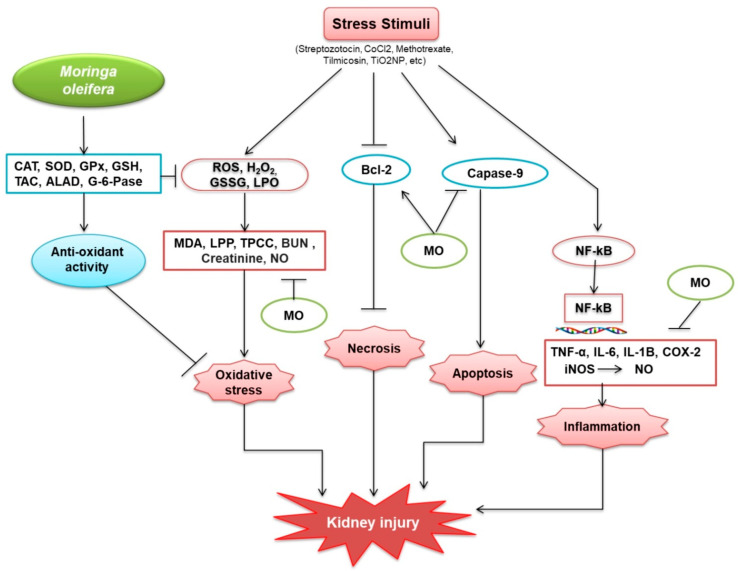Figure 4.
Protective mechanisms of M. oleifera against kidney injury. M. oleifera increased the production of catalase (CAT); superoxide dismutase (SOD); glutathione peroxidase (GPx); glutathione (GSH); total antioxidant capacity (TAC); delta-amino levulinic acid dehydratase (ALAD); and G-6-Pase, which facilitated oxidative stress reduction by activating glutathione (GSH), a non-protein thiol that suppresses free radicals. GSH suppresses the oxidative stress situation. M. oleifera also suppressed oxidative stressors caused by ROS, H2O2, GSSG, and LPO by inhibiting MDA, LPP, TPCC, BUN, Creatinine, and NO. Bcl-2 was similarly produced by stress stimuli and was linked to the suppression of necrosis, induced by M. oleifera. M. oleifera inhibited the expression of Caspase-9, a protein involved in the formation of caspases. Following NF-kB, stress stimuli also increased CRP expression. NF-kB then moved from the cytosol to the nucleus, bound to DNA, and activated inflammation-related proteins. M. oleifera inhibited the mechanism by which inflammation factors were produced, hence, reducing inflammation. M. oleifera has been linked to a reduction in the progression of kidney disease.

